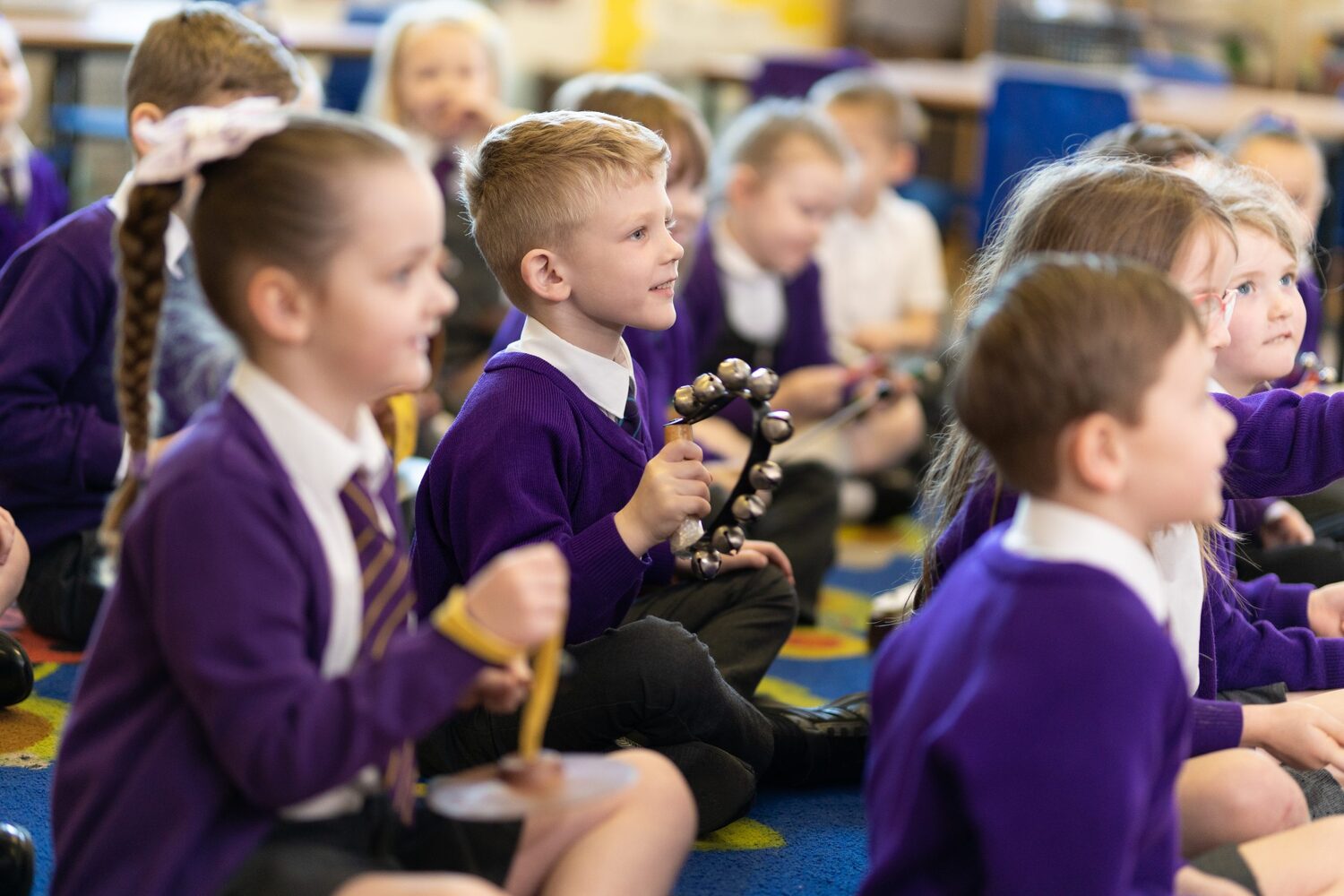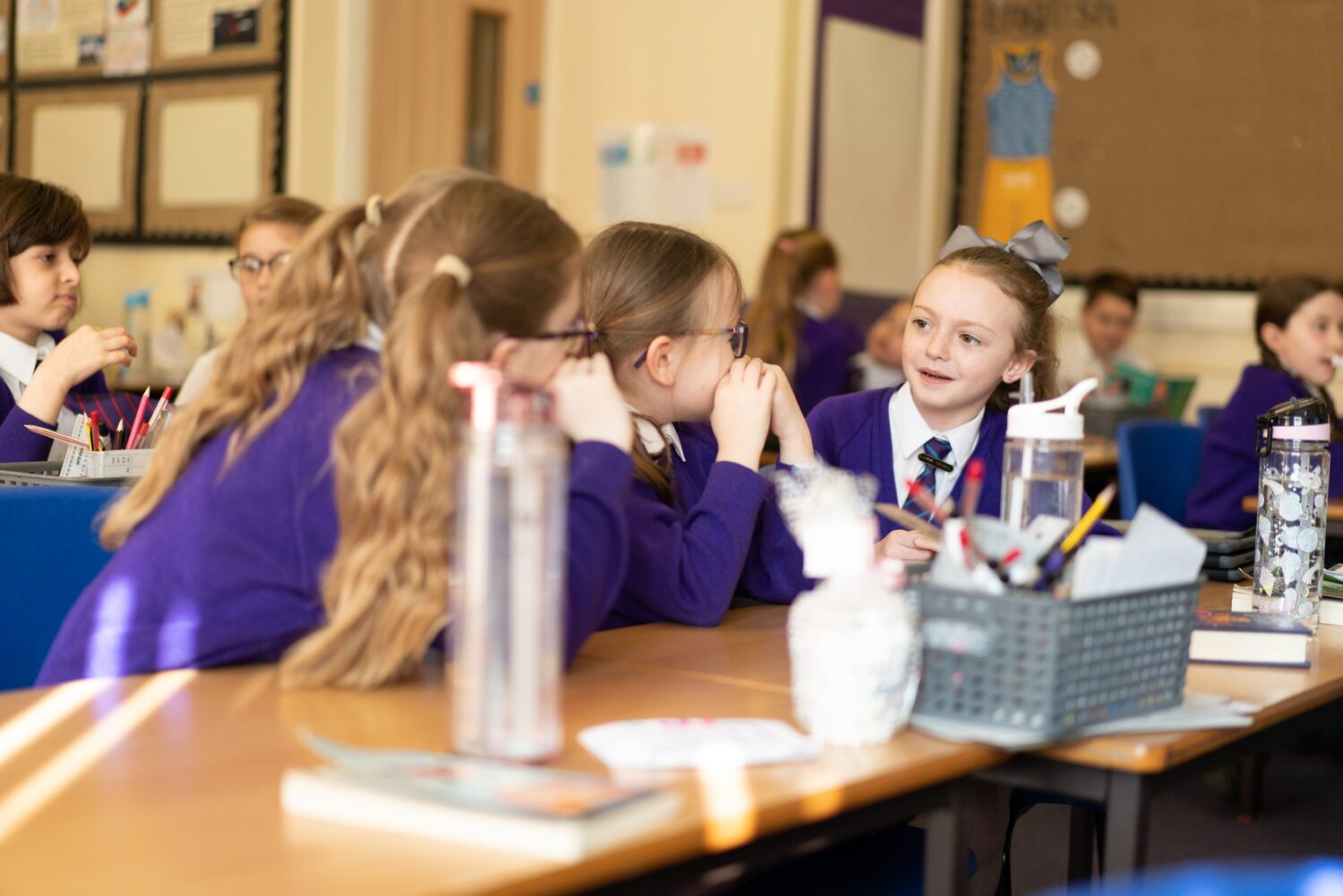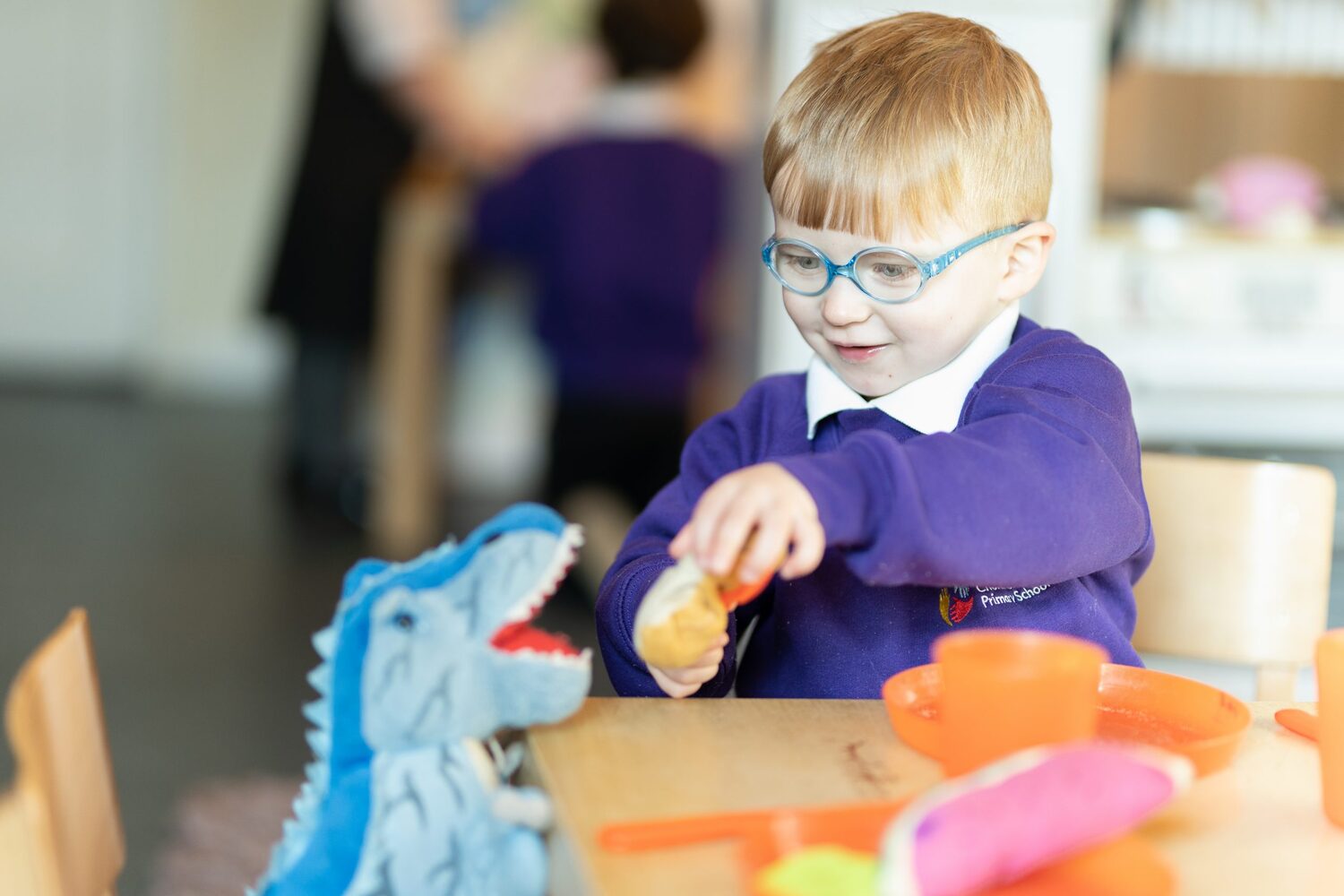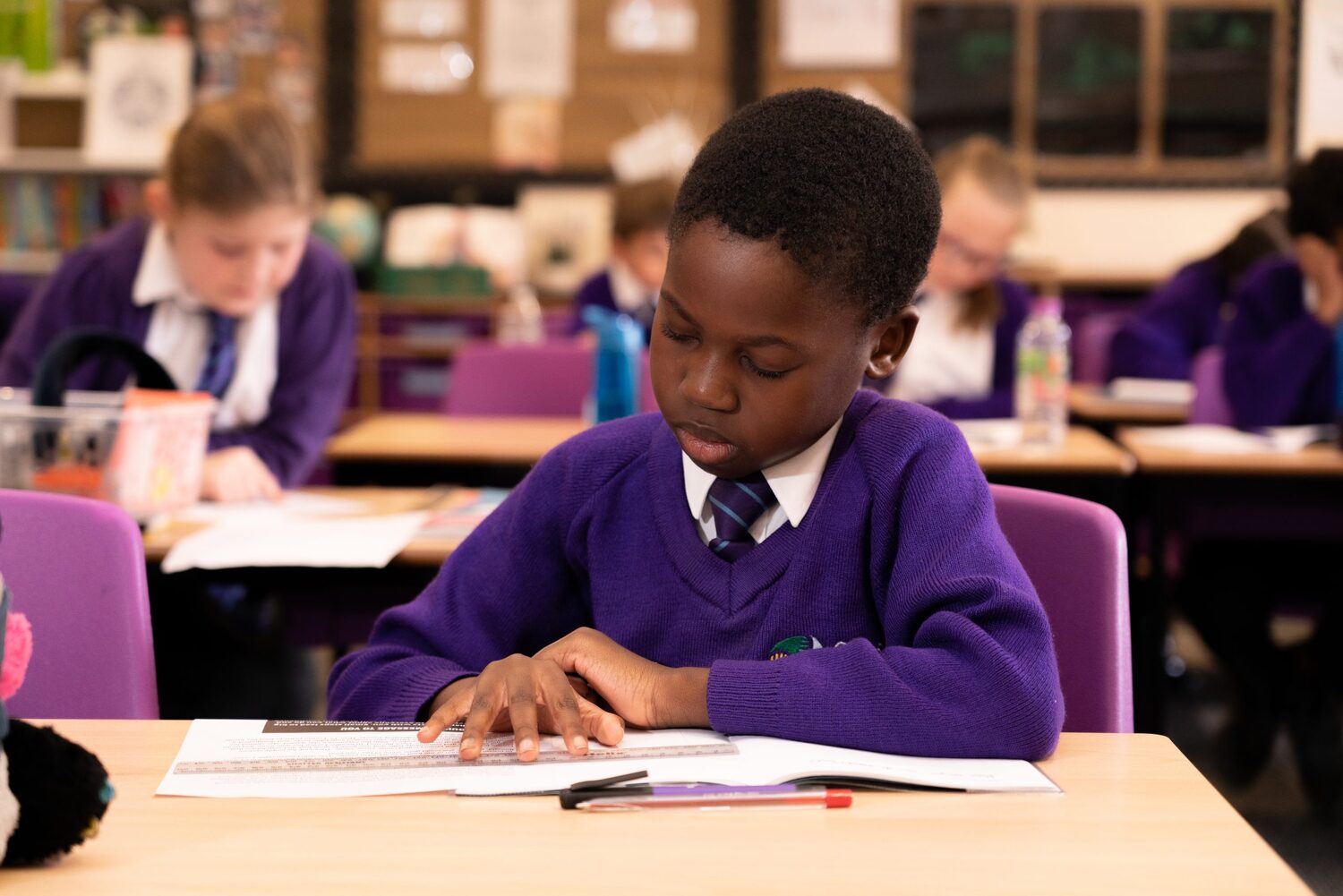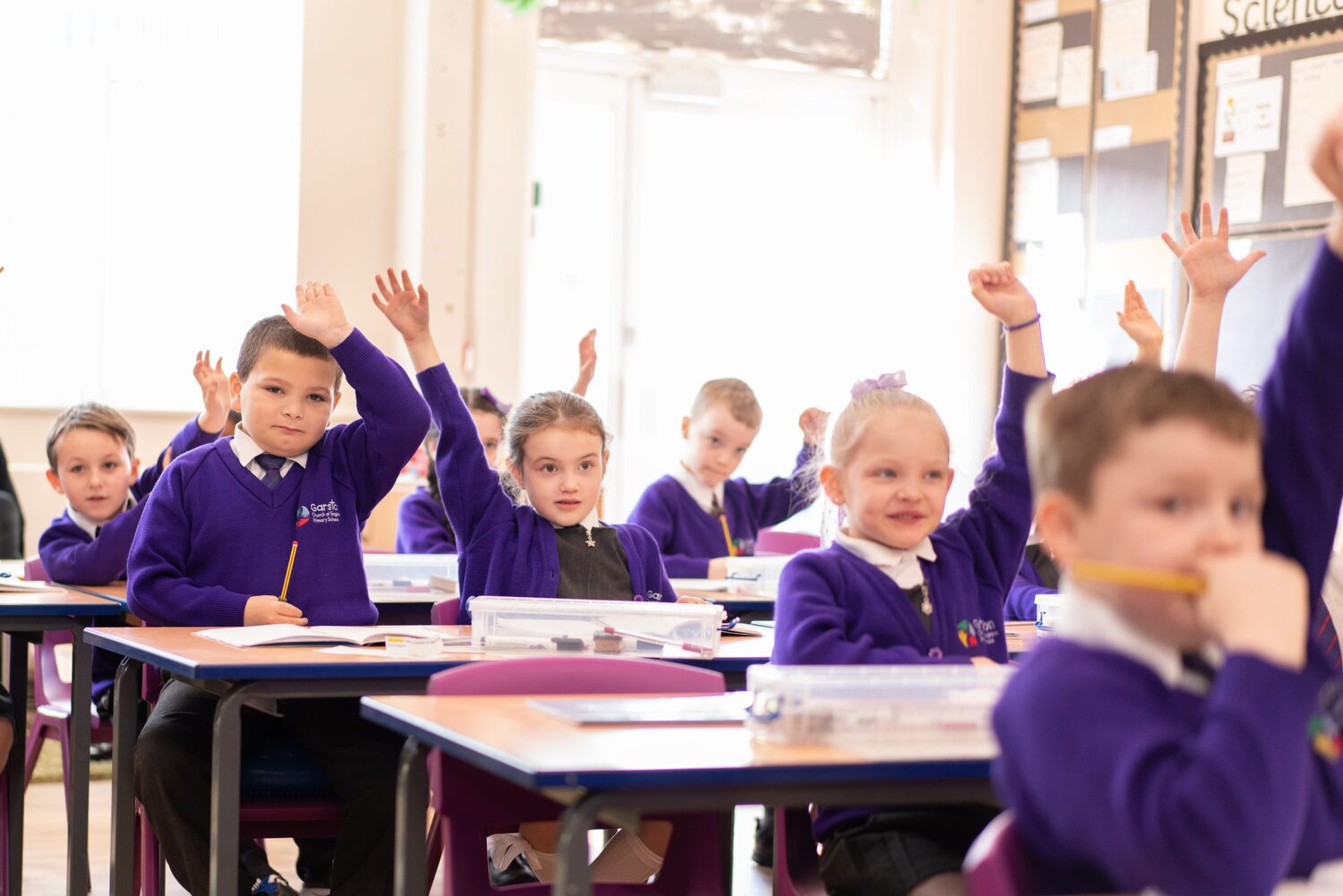
SMSC
SMSC is an aspect of learning that is present throughout school and is evident in the children’s learning and their behaviour. We have 5 school values which support the children in their understanding and application of SMSC – Trust, Wisdom, Friendship, Excellence and Endurance. These values are woven into everything that we do as a school and allow the children to reflect upon themselves and their own actions whilst dealing with moral challenges. Please follow the links below to see how we support children in each are of their SMSC journey. In addition, please follow our Twitter page as this is regularly updated and demonstrates our children’s SMSC journey – Garston CE Twitter
Spiritual Development
-
Spiritual development of pupils is shown by their ability to be reflective about their own beliefs, religious or otherwise, that inform their perspective on life and their interest in and respect for different people’s faiths, feelings and values. They demonstrate a sense of enjoyment and fascination when learning about themselves, others and the world around them. Spiritual development allows children to have a sense of imagination and creativity in their learning and supports them in their willingness to reflect on their own experiences.
-
Spiritual development is embedded throughout our curriculum, providing children the opportunities to explore the world and others around them in addition to imparting a love of learning. Our school vision of ‘each and every child’ demonstrates the importance of understanding the individuality and importance of every child and this is reflected in the children’s attitudes towards themselves and others around them.
We further embed spiritual development through:
- Our own daily worship, focusing on Trust and British Values, the celebration of achievements and Singing Worships.
-
Spiritual development of pupils is shown by their ability to be reflective about their own beliefs, religious or otherwise, that inform their perspective on life and their interest in and respect for different people’s faiths, feelings and values. They demonstrate a sense of enjoyment and fascination when learning about themselves, others and the world around them. Spiritual development allows children to have a sense of imagination and creativity in their learning and supports them in their willingness to reflect on their own experiences.
Spiritual development is embedded throughout our curriculum, providing children the opportunities to explore the world and others around them in addition to imparting a love of learning. Our school vision of ‘each and every child’ demonstrates the importance of understanding the individuality and importance of every child and this is reflected in the children’s attitudes towards themselves and others around them.
We further embed spiritual development through:
- Our own daily worship, focusing on Trust and British Values, the celebration of achievements and Singing Worships.
- Positive behaviour approach (including phone calls home, visits to Leadership Team, postcards etc.) and the implementation of our school rules School Rules.
- Our school vision and values ensures every member of staff supports each and every child to achieve their very best. To see more information about our Vision and Values, click here.
- We hold weekly assemblies in which we explore the different British Values and how they impact on our lives. To see an example of an assembly, please click here.
- We use Picture News resources to discuss and debate around current issues relating to different British Values. To see an example of Picture News, please click here.
- We have a variety of different lunch clubs, including Yoga and Mindfulness, supporting children in the reflection of themselves
- We have embedded Zones of Regulation throughout the school and children use this to reflect, identifying feelings and enabling them to be in the Green Zone, ready to learn.
- We have developed specific interventions in order to support our pupils in building empathy and understanding, alongside developing the ability to further understand themselves.
- Our behaviour policy (as shown above) is rooted in positive reinforcement and kindness. We use restorative conversations to ensure that children feel safe and secure in school.
- Our RE planning is broad and rich, providing all children with a deep understanding of different religions and their impact. For further information regarding our RE curriculum, please click here.
- Children are able to visit places for worship for a variety of different faiths (i.e, mosques, synagogues, churches).
- Awareness Days are celebrated to raise the profile of a diverse range of events and cultural and religious differences throughout the school year. For an overview of the Awareness Events that we celebrate, click here.
Moral Development
Moral development of pupils is shown by their ability to recognise the difference between right and wrong and to readily apply this understanding in their own lives, recognising legal boundaries and in doing so, respect the civil and criminal law of England. Children understand the consequences of their behaviour and actions and show an interest in investigating and offering reasoned views about moral and ethical issues, demonstrating an ability to understand and appreciate the viewpoints of others on these issues.
We support our children in this journey in a variety of different ways:
- Our school rules and behaviour blueprint support our children in making the right choices, recognising boundaries and understanding the consequences for not following them. We use recognition boards and daily, weekly and half-termly rewards to support moral development. For further information around our behaviour policies, please click here.
- We hold weekly assemblies in which we explore the different British Values and how they impact on our lives. To see an example of an assembly, please click here.
- We use Picture News resources to discuss and debate around current issues relating to different British Values. To see an example of Picture News, please click here.
- We develop children’s understanding of rules outside of school, such as Road Safety, through Road Safety Workshops and Bikeability sessions.
- Our comprehensive PSCHE curriculum supports the moral development of our children. For information on our curriculum, click here.
- We have embedded Zones of Regulation throughout the school and children use this to reflect, identifying feelings and enabling them to be in the Green Zone, ready to learn.
- In addition, our Year 5 and 6 pupils have the opportunity to take part in the Mini Police programme, where they carry out a variety of responsibilities inside and outside of school, upholding the rules. For further information about Mini Police, click here.
- We also take part in the Cell’s Project. Cell’s primary objective is to educate children and young people on the consequences of crime. To find out more about the Cell’s Project, click here.
- As part of our Pupil Leadership Team, we have an Eco-Warriors group. They work hard to develop the school’s offer in looking after our world, demonstrating their moral development and commitment to our Earth.
- Across school, each class has a Charity and Citizenship drive in order to help understand the different situations that others may face and widen our moral development. For further information around our class drives, click here.
Social Development
Social development of pupils is shown by their range of social skills and their ability to adapt these when working and socialising with other pupils. They show a willingness to participate in a variety of communities and social settings, including volunteering, cooperating well with others and being able to resolve conflicts effectively. Social development provides children with an acceptance and engagement with the fundamental British values of democracy, the rule of law, individual liberty and mutual respect and tolerance of those with different faiths and beliefs; they develop and demonstrate skills and attitudes that allow them to fully participate and contribute positively to life in modern Britain.
We support our children in their social development in a variety of different ways.
- We use Zones of Regulation in order to help children regulate their emotions and solve conflicts in challenging circumstances. helping children to regulate in conflicting circumstances.
- We celebrate diversity at Garston, teaching the importance of respect and tolerance to the differences of others. We are undertaking the Rainbow Flag Award.
- We have our own After-School Club which supports children in their ability to mix with a variety of pupils, providing games and activities and modelling appropriate interactions and turn-taking skills.
- In addition to the above, we also have our own Breakfast Club and Positive Start Club to help children build friendships and start their day positively.
- Children are able to benefit from a Positive lunch Club led by our CWSO. During this time, children can take part in adult led games and activities and are supported in building friendship skills.
- In addition to the above, we also have our own Breakfast Club and Positive Start Club to help children build friendships and start their day positively.
- Children are able to benefit from a Positive lunch Club led by our CWSO. During this time, children can take part in adult led games and activities and are supported in building friendship skills.
- We run Residential Trips throughout Years 2 – 6, enabling children to participate in different experiences, developing communication and friendship skills.
- We have a variety of different interventions that support children in developing their friendship skills, from Lego Therapy, to our own Evolve intervention.
- Our Trust Values demonstrate the importance of developing good friendship skills.
Cultural Development
Cultural development of pupils is shown by their understanding and appreciation of the wide range of cultural influences that have shaped their own heritage and those of others. Children understand and appreciate the range of different cultures within school and further afield as an essential element of their preparation for life in modern Britain. Children have a good understanding of Britain’s democratic parliamentary system and its central role in shaping our history and values, and in continuing to develop Britain. Children demonstrate a willingness to participate in and respond positively to artistic, musical, sporting and cultural opportunities. They have an interest in exploring, improving understanding of and showing respect for different faiths and cultural diversity, showing tolerance, positive attitudes and a celebration towards different religious, ethnic and socio-economic groups in the local, national and global communities.
This is developed in several ways throughout school life.
- We ensure that throughout the year each year group goes on several school trips to further enhance their learning. These often have a focus on developing a cultural understanding of Britain, through trips to the Theatre, Art Galleries and Museums. In addition, we welcome visitors to school.
- We demonstrate the importance of democracy throughout the school. Children understand the power of their own voice as we hold regular sessions where pupils can voice their ideas and beliefs about school. We have our own School Council and these are democratically elected. In addition, several whole school changes are made through a democratic process.
- We are part of the Mini Police programme, working alongside Merseyside Police to support our communities. For more information around Mini Police, please click here.
- We have wider links with our local community, from litter picking to delivering cards and singing to elderly homes, our children take part in the development and support of our local community.
- We celebrate our school community’s diverse set of backgrounds, sharing cultures and traditions together.
- We have a wide variety of clubs and enrichment opportunities available for all children. To see more about how we enrich our curriculum, please click here.
